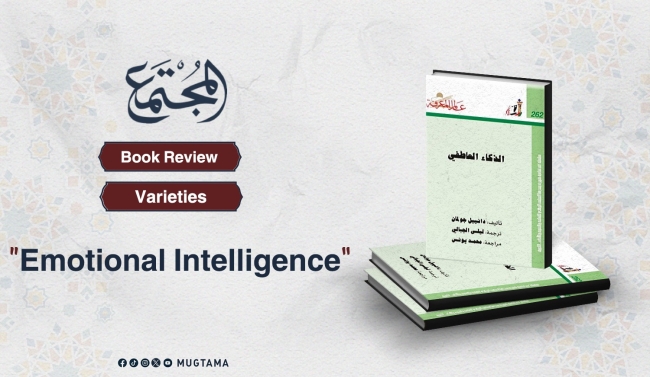In a world dominated by rational thinking and where abilities are measured by IQ, the book "Emotional Intelligence" by Daniel Goleman redefines the concept of success.
The book challenges traditional views and emphasizes emotional intelligence (EI) as a key factor influencing the quality of our personal and professional lives. Through rich examples and studies, Goleman highlights the importance of empathy, self-awareness, and emotional management in achieving balance and prosperity.
Summary of the Book
First: What is Emotional Intelligence?
Goleman defines emotional intelligence as the ability to understand and manage one’s own emotions and those of others effectively. It is based on five key skills:
1. Self-awareness: Deep understanding of one’s feelings.
2. Self-regulation: Controlling emotions and responding positively.
3. Self-motivation: Harnessing emotions to achieve goals.
4. Empathy: Understanding and consciously interacting with others.
5. Social skills: Building strong and positive relationships.
Second: The Two Minds – Emotional and Rational
The author sheds light on the relationship between the emotional and rational minds. The emotional mind dominates in sudden moments, while the rational mind analyzes and thinks slowly. He gives an example of facing danger, where the emotional mind responds first to protect the person.
Third: When Does Emotion Overpower Reason?
In highly impactful situations, emotions may override rational thinking, leading to impulsive decisions. For instance, an employee may respond aggressively to an insult at work without evaluating the situation rationally.
Fourth: The Origin of Emotions
The book explores the evolution of emotions and how they helped humanity survive. Emotions like love, anger, and fear are not just feelings but tools for survival and adaptation.
Fifth: Emotions and Health
Goleman focuses on the impact of emotions on health. Negative emotions such as anger and stress are linked to serious health issues, while positive emotions like happiness enhance health and longevity.
Sixth: Emotional Intelligence at Work
The book highlights the role of emotional intelligence in improving workplace performance. A leader with emotional skills can resolve conflicts and foster a cooperative environment.
Seventh: Emotional Intelligence and Personal Relationships
Goleman connects emotional intelligence with family relationships. Understanding a partner’s emotions and effective communication strengthen marital bonds, making them more stable.
Eighth: Teaching Emotional Intelligence to Children
The book emphasizes the importance of teaching children emotional skills from an early age. Educational programs focused on emotional intelligence improve children’s behavior and help them build healthy relationships.
Ninth: Emotional Intelligence and Society
Goleman illustrates how emotional intelligence can enhance society. Empathy and understanding among individuals contribute to conflict resolution and create a cohesive environment.
Tenth: The Future of Emotional Intelligence
The author envisions a future where emotional intelligence skills are essential for leadership and success. The world will demand leaders who can manage their emotions and inspire others.
"Emotional Intelligence" is not just a book but a call to reconsider how we evaluate success. It is a practical guide to improving emotional skills and developing our lives. The book offers a realistic perspective on how to use emotions as a driving force to achieve balance and success in life. If you are looking for a tool for positive change, this book is the starting point.
-------------------------------------------------------------


